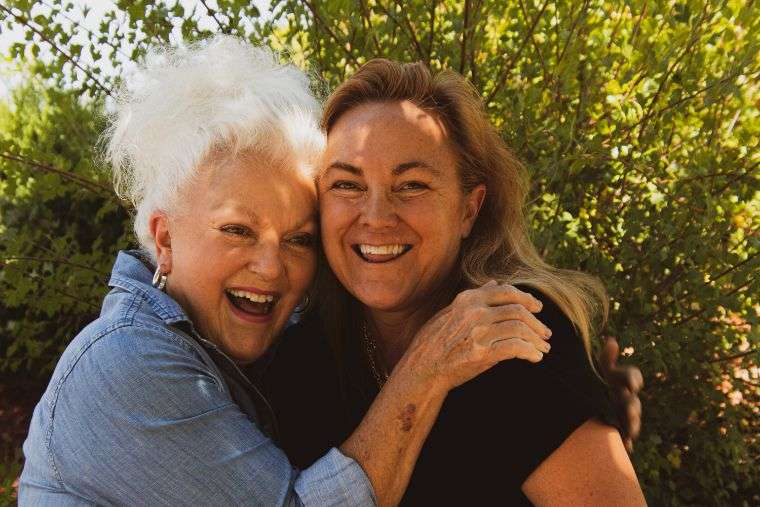At Cornerstone, we’ve witnessed how addiction can devastate careers, strain relationships, take away hobbies, and endanger health and safety. When addiction becomes overwhelming, even basic tasks like personal hygiene, household chores, and caring for loved ones can feel impossible.
You’ve already taken the first step in seeking help by finding our website. Read on to learn about Cornerstone’s highly qualified and passionate team. Everyone who arrives at our doors receives the same high level of care, no matter what their story is.
What is Drug Addiction?
We define drug addiction as a condition that arises when someone repeatedly uses a drug — whether legally or illegally — developing a psychological or physical dependence on it. They simply cannot stop and may even feel that their life depends on using the drug.
What causes drug addiction?
Addiction can be caused by many factors, the first is what is simply “positive reinforcement”. You’re driven to things that make you feel good. Drug “highs” and euphoric effects are positive reinforcements that some people come to rely on. Additionally, these factors contribute to drug addiction:
- Hereditary factors: Family history of addiction.
- Environmental factors: Living with an addict and witnessing drug use.
- Mental illness: Self-medicating to treat mental health conditions.
- Trauma exposure: Stressful events such as job loss, death of a loved one, divorce, financial problems, violence, and other traumatic events.
Drug Addiction in Southern California
Substance abuse is common no matter where you live. The California Health Care Foundation (CHCF) estimates that 8% of Californians have a problematic drug addiction; that’s 1 in every 12.5 people, yet only 10% end up getting help with their addiction.
In Orange County, addiction rates are slightly less than the state and national average but are still a major public health concern for our community. According to the Orange County Health Care Agency (OCHCA), methamphetamines and other stimulants (44%), heroin (20%), alcohol (18%), and marijuana (13%) are the most commonly treated addictions. Opiates (2%) and sedatives (1%) make up an appreciably smaller portion of treatment. Note that these are not the rate of drug use statistics, but rather the percentage of those seeking help with their addiction.
Our Expert Drug Addiction Specialists
Our team understands how overwhelming and lonely addiction feels. Many of us have been helping people transition into sobriety for many years, and some of us are in recovery ourselves.
Dr. Michael Stone has built a well-rounded team of 90+ professionals who have the education, training, and experience to help those who struggle with drug addiction.
We believe in:
- Creating a judgment-free space where you feel safe and supported.
- Transparency between you and your treatment team, so you are part of the decision-making process.
- Delivering treatment plans that take all of your physical and emotional needs into consideration.
- Identifying and addressing the underlying causes of addiction.
Dangers of Prolonged Drug Addiction
Delaying seeking help for drug addiction will make your condition worse, put you at higher risk for negative side effects, and worsen your symptoms. As addiction grows, you are at higher risk for using more dangerous substances and putting your life and your loved ones' lives at risk. Other long-term risks include:
- Isolation and serious psychological problems.
- Behavioral and mental health problems.
- Secondary or multiple addictions.
- Severe medical issues and even death.
The good news is it is never too late to seek help. Recovery is possible at any stage of addiction.
Cornerstone’s Drug Rehabilitation Program
Drug addiction treatment assessment
We offer a free, confidential drug addiction assessment with one of our rehabilitation specialists, so you can ask questions, express your concerns, and begin your path to recovery.
Managing withdrawal and detox
Your recovery plan might start with our detox program managed by medical professionals. The Detox program may last seven to ten days and involve anti-craving medications that will help ease the detox process. At Cornerstone we aim to make our clients as comfortable as possible during their time with us.
Therapy and support
Once you begin your treatment plan, you will meet with a psychiatrist to help identify any medical and/or psychiatric issues, so we can tailor your treatment to you.
Your treatment team may recommend one-on-one therapy sessions paired with group sessions. You will also have opportunities to join family and couples therapy programs.
In-patient drug treatment program
The typical addiction treatment program at Cornerstone is an intensive 28-day program at our Southern California treatment center. However, the length of your stay will depend on your needs, your conditions, and your commitment to your rehabilitation program.
12-Step Program
We follow a 12-step addiction treatment program based on Alcoholics Anonymous. The recovery plan focuses on what motivates your recovery, as well as what triggers you to use drugs. We help you identify the underlying causes and triggers that fuel your addiction, so you can learn new behaviors that are anchored in self-worth and humility.
Post-Treatment Addiction Care
Once you leave the residential treatment program, our staff has access to resources that can help you live a better life. We can help you find legal support, financial resources, out-patient support, as well as licensed sober living homes for post-treatment transition.
Out-Patient Treatment Options
If you’d prefer not to do an in-patient residential rehab program, we offer high-quality Day Treatment and Outpatient drug addiction recovery programs that can be tailored to your needs. Talk to us about these options during your free initial consultation.
Types of Drug Addiction Treated at Cornerstone
At Cornerstone, our team of experienced practitioners is qualified to deliver treatment for a variety of drug addictions:
We find that many people who seek help for drug addiction are using more than a single substance (polydrug use). It is not uncommon to have an addiction to drugs and alcohol, for example.
Drug Addiction Signs & Symptoms
Drug addiction looks different from person to person, yet it has many characteristics in common. If you have any of the following signs or symptoms, you may have a drug addiction problem.
- Drug tolerance: You always need to use more and more often to achieve the high you crave.
- Obsession: You become increasingly preoccupied with buying and using the drug, which replaces other interests and responsibilities in your life.
- Deception: You feel the need to lie, minimize, or hide the amount of drugs you use and how often you use them.
- Financial problems: You irresponsibly spend money on drugs, or you borrow money that you are unable to pay back to buy drugs.
- Cravings: You experience cravings for the drug that alter your mood or ability to focus.
- Self-medicating: You use drugs as a way of coping with mental health issues such as stress, anxiety, or depression.
- Awareness: You know your drug use has a negative impact, but you keep doing it anyway.
- Withdrawal: You experience withdrawal symptoms when you can’t get the drug, or when you try to cut down or give up on your own.
Why Detox Alone Isn’t Enough for Lasting Recovery
While medically assisted detox is a critical first step in overcoming addiction, it is not a complete treatment on its own. Detox helps manage withdrawal symptoms and stabilizes the body, but it doesn’t address the underlying psychological and behavioral patterns that drive substance use. Addiction is a chronic brain disease that often requires long-term support, including therapy, counseling, and peer support, to promote lasting change. Without continued treatment after detox, individuals are at high risk of relapse, as the habits and triggers that led to substance abuse remain unaddressed. True recovery comes through building healthier thought patterns, learning coping strategies, and committing to a structured, ongoing treatment plan.
How to Talk to a Loved One About Going to Rehab
Starting a conversation about rehab with a loved one can be challenging, but it’s often a necessary step in helping them seek treatment. Whether it's a casual talk or a formal intervention, planning ahead is crucial. Choose a time when the person is sober and prepare by learning about addiction, related mental health conditions, and available treatment options. Research local rehab centers, understand what insurance covers, and consult with a professional interventionist if needed. During the conversation, be honest and compassionate—acknowledge the impact their substance use has had on them and those around them, without being judgmental. Let them know your goal is to support their recovery, not to criticize. Present treatment options clearly, emphasizing that rehab is a step toward regaining control of their life. If they are receptive, take action immediately—set a rehab admission date, connect them with support groups, and maintain communication with treatment professionals. Lastly, don’t neglect your own well-being—groups like Al-Anon can offer valuable support during this time.
Beginning Your Recovery Program
We’re glad you’re here. We know how overwhelming it can be when you are in the depths of your addiction and trying to figure out what to do next. Here is our best advice, based on many decades of research and working with people just like you:
- Acceptance is the first step in the 12-step recovery process; accept that you’re no longer in control of your drug use and it has become a problem.
- Be open and honest with people closest to you about how often you have been using drugs and how much you use.
- Be open and honest during your initial call with the Cornerstone staff; your call is confidential, and we’re here to help you.
- Avoid negative influences, including people, places, and events that trigger and enable your drug use.
- Prepare to make significant changes in your life as you enter treatment and begin your recovery from drug addiction.
- Accept that change is hard.
Cornerstone’s team is available 24/7/365. Our specialists are on call around the clock, and we can help you if you have urgent needs, no matter how long it’s been since you used drugs.
We can help you safely detox and transition into a medically supervised recovery program today.
Back to Homepage: Rehab Center in Orange County














